| Gemstone Chart |
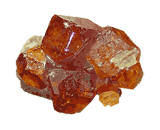 Natural Hessonite Natural Hessonite
Hessonite is one of the gem varieties of the garnet mineral, grossular. Hessonite is usually cinnamon brown and has been called "cinnamon stone". Hessonite can also be orange; this color is becoming common on the gem markets.
Color: Brownish-orange, brownish yellow, aurora red
Categories: semi-precious stone
Chemical Composition: Ca3Al2(SIO4)3
Crystal Group: Cubic
Refractive Index: 1.72-1.74
Hardness: 7.25
Density: 3.65
Occurrence: Sri Lanka, Mexico, Brazil, Canada, Madagascar
| 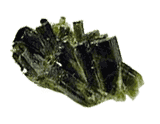 Natural Idocrase Natural Idocrase
Primarily a green color that will resemble jade.idocrase is one stone that is sometimes mistaken for jade by jewelers and consumers alike. Idocrase is from the greek and means mixed form, an allusion to its crystals showing a mixture of other mineral forms.
Color: normally green, but also can be brown, yellow, blue and/or purple.
Categories: semi-precious stone
Chemical Composition: nesosilicate or sorosilicate
Crystal Group: Tetragonal
Refractive Index: 1.71 - 1.73
Hardness: 6.5
Density: 3.3 - 3.5
Occurrence: Quebec, Canada; California and the New England region of USA; Mt Vesuvius, Italy; Ural Mountains, Russia, Switzerland, East Africa
| 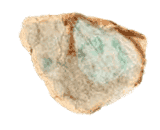 Natural Jadeite Natural Jadeite
A rare, usually green mineral of the pyroxene group. Jadeite can also occur in white, auburn, buff, or violet varieties. The most highly valued form of jade consists of jadeite.Jade has a history in China of at least four thousands years.Experts believe that, although more expensive, diamonds and gold cannot be compared with jade - jade is animated with a soul.
Color: Pure white thru pink, brown, red, orange, yellow, mauve, violet, blue, and black, to an extensive range of green and mottled green and white.
Categories: semi-precious stone
Chemical Composition: NaAl(SiO3)2
Crystal Group: Monoclinic
Refractive Index: 1.654 - 1.667
Hardness: 7
Density: 3.32
Occurrence: Northern Myanmar. Non commercial discoveries of Jadeite have also been reported in China; Russia (in the Polar Urals); Niigata, Japan; San Benito County, California, USA, and Guatemala.
| 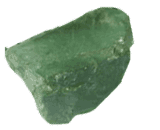 Natural Kornerupine Natural Kornerupine
Kornerupine is a rare mineral occasionally used as a gemstone. It appears frequently in parcels from Ceylon and may be confused with beryl, peridot, topaz, or quartz.
Color: Brown, brownish red, yellow-green, light green, blue green
Categories: semi-precious stone
Crystal Group: Orthorhombic
Refractive Index: 1.665 ¨C 1.683
Hardness: 6.5
Density: 3.25 - 3.35
Occurrence: Ceylon, Tanzania
| 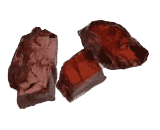 Natural Malaia Garnet Natural Malaia Garnet
Malaia garnet is a mixture of almandine, pyrope, and spessartine. It has remained the preserve of collectors for the 2 decades since it was discovered, mainly due to its extreme rarity.Tanzania is the known source for this lovely gemstone.
Color: orangey pink, champagne, orange brown, copper-pink.
Categories: semi-precious stone
Chemical Composition: [Mg3 + Mn3]AL2(SIO4)
Crystal Group: Cubic
Refractive Index: 1.73 - 1.81
Hardness: 7 - 7.5
Density: 3.65 - 4.20
Occurrence: Kenya, Tanzania, Madagascar
| 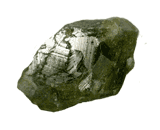 Natural Mali Garnet Natural Mali Garnet
Mali Garnet is a mixture of grossular (calcium aluminum silicate) and andradite (calcium iron silicate ). It is a yellow-green variety of grossular with a slight overlap in the grossular-andradite series.Mali garnet is one of the latest discoveries in the garnet family.
Color: yellow, brown, green.
Categories: semi-precious stone
Chemical Composition: Ca3Al2(SiO4)3
Crystal Group: Cubic
Refractive Index: 1.72-1.748
Hardness: 7.25
Density: 3.65
Occurrence: Mali
| 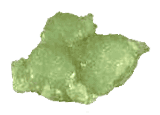 Natural Prehnite Natural Prehnite
Prehnite is a hydrated calcium aluminum silicate that occurs in a soft yellow-green to apple-green color.It was a rare gemstone, most prehnite is translucent but transparent specimens are sometimes found.While you are unlikely to find it in your local jewelry store, gemstone dealers often have some supply. Deposits are found in South Africa, Australia, China, Scotland and the United States.
Color: yellow green, brown, yellow brown, oil green
Categories: semi-precious stone
Chemical Composition: (CA2Al2SI3O10(OH)2)
Crystal Group: Orthorhombic
Refractive Index: 1.61 - 1.64
Hardness: 6
Density: 2.80 - 2.95
Occurrence: China, France, U.S.A., Scotland, Australia
| 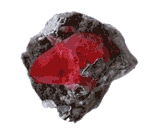 Natural Rhodochrosite Natural Rhodochrosite
Rhodochrosite is a manganese carbonate mineral with chemical composition MnCO3. The pink color of rhodochrosite is caused by the element manganese and it is formed when manganese is dissolved by ground water and combines with a carbonate material and then drips off the ceiling of caves and crevices deep underground.Rhodochrosite often forms pink and white bands. It is often carved into figurines or boxes while the tubular stalactite formations are often sliced for use in jewelry. Fine gem quality crystals are sometimes cut into gemstones for use in high end jewelry, but the more common grade is used extensively in silver and gold jewelry.
Color: Rose red, raspberry red, pink, grey, fawn, brown
Categories: semi-precious stone
Chemical Composition: MnCO3
Crystal Group: Trigonal
Refractive Index: 1.600 ¨C 1.820
Hardness: 4
Density: 3.45 ¨C 3.70
Occurrence: Argentina; Colorado, U.S.A.; Romania; Hungary; India; South Africa; Saxony, Chile; Peru; Mexico.
|
|
